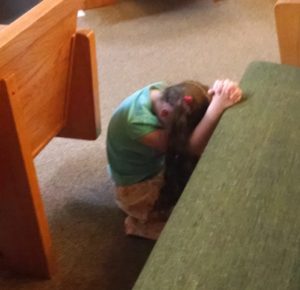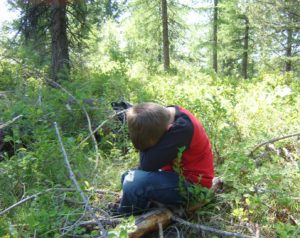What each person considers important varies greatly. The maturity of the person certainly plays a role. A five-year-old has a great interest in candy and playtime. A fifty-year-old is more likely to be interested in how prepared they are for retirement and when they will have grandchildren.
The culture and training of the person also affect their views on what is a priority. I have observed this in my local area. About twenty miles away from me is a city of about 80,000 people. The culture in that city is vastly different from the majority of the state. Most people in the city are interested in what toys they can accumulate and instant gratification. Outside the city, people tend to be friendlier. The people outside the city are more focused on accomplishing the daily goals needed to succeed in whatever they are pursuing.
You can determine a person’s priorities by looking at their life and where they focus their energy. My oldest daughter is an example of concentrating on a goal. Between graduating from high school and turning 22, she obtained a private pilot’s license, lived abroad for two and a half years, and received her license as an airplane mechanic. She is an individual who will only quit once she has achieved her goal, even if it takes multiple attempts.

If living in God’s shadow is a priority to us, the natural rhythm of our life should exhibit that intention. When we closely follow God, we live in a manner that honors his commands and directives. We refuse to participate in things that would damage our relationship with God. If we want to claim the promises of God’s care and provision for us, we must consider the Ten Commandments as the most important commands in our lives.
Keeping focused on what is a priority can be challenging. Emergencies pop up and divert our attention. Processes that we plan to go smoothly develop problems. It is during these times that we must pause and recalibrate what is the priority. A recent hospital stay reminded me of the importance of passing on what I know and the skills I have learned.
If we live in God’s shadow, we know our strength to face each day’s difficulties comes from Him. We live such busy lives, sometimes forgetting where our power comes from and leaving God’s shadow. Leaving the shadow of God leaves us vulnerable and without a source of spiritual strength. Usually, we do not realize that we have wandered away from God until we find that we lack the power we need.
I remember one time I became gravely ill. I had been living a hectic life with very little time for rest. One day I felt great and was hiking in the mountains. Two days later, I was so weak I almost could not stand unaided. What happened was that I had developed some internal bleeding, and without knowing it, I was bleeding to death. Recovery from this illness required that I allow the doctors to examine me and pay strict attention to the doctor’s orders. It was not helpful to lie in the hospital and worry about all the work I was not accomplishing. Getting well was what was urgent. I had to focus on healing and put everything aside while allowing my body to recover.
Our spiritual lives are very similar. When we get caught up in the activities around us and forget that the goal is to live in God’s shadow, we will become spiritually sick. If we continue neglecting our spiritual health, we will become spiritually weak. Ignoring our connection to our spiritual life source will eventually result in becoming a spiritual corpse. God always welcomes us back when we turn from our distractions and recognize that living in His shadow is what is essential. It does not matter how much our spiritual health has declined. Ezekiel 37 contains the account of when God taught Ezekiel that God could put new life in old dried-out bones. If God can revive a valley of dry bones, He can restore you to spiritual health.
Spiritual health takes time and effort. It is no different than our physical or mental health. We all have busy schedules. I have watched people throughout my life and observed that humans make time for what they consider a priority. When my daughter was training to get her private pilot’s license, she felt it was important. She was working a job, taking some classes, and taking flight lessons. Her days were often 15 or 16 hours long. However, she considered the license important enough to endure long days.
Unfortunately, it is usually the emergencies that help us recognize that our priorities have gotten misplaced. My sudden inability to move by myself revealed my poor job of caring for my physical health. We must understand that our spiritual health is essential to maintaining our physical or mental health.
Jesus Christ expressed that it was a priority to Him to bring others to a place of spiritual health. Those around Jesus criticized Him for spending time around spiritually unhealthy people. Scripture tells us the result was that “When Jesus heard this, he said to them, “Those who are well have no need of a physician, but those who are sick; I have come to call not the righteous but sinners.” (Mark 2:17 NRSV)

Faithbox Monthly Subscriptionfrom:
Faithbox
When we improve our spiritual health, our priorities align with what God counts necessary. Striving to live in God’s shadow puts us in pursuit of the heart of God. Our spiritual health flourishes when we consider godliness something important to focus on. A spiritually healthy person will naturally point others to where they can find the same spiritual health in God’s shadow.
What do you consider important? If spiritual health is important to you, pursuing God and living in His shadow will naturally be important.










